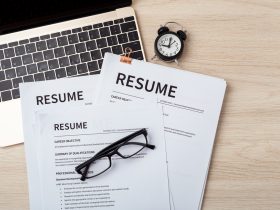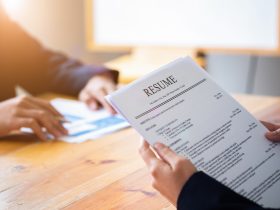Understanding Employee Reference Letters
Employee reference letters, sometimes known as reference employee letters, are formal documents from previous employers or professional contacts to attest to an individual’s qualifications, skills, and character. They play a crucial role in hiring, offering employers valuable insights into a candidate’s work history and performance.
The Dual Purpose
Reference letters for employees serve a dual purpose. Firstly, they validate the claims made by a candidate on their resume and during interviews. Then, they provide additional context on the candidate’s teamwork skills, work ethic, and suitability for the position.
Elements of a Well-Crafted Reference Letter for an Employee
A well-structured professional reference letter should include these key elements:
Information to Strengthen Communication
Start with essential details like name, company name, title, and contact information. This not only lends credibility to the letter but also provides a means for further verification if necessary.
First Greeting
The recipient must be addressed appropriately. It should be used if the recipient’s name is known. A greeting such as “To Whom It May Concern” may be used if the name is unknown.
Introduction
Specify your connection with the employee and the duration of the association. This sets the context for the recommendation.
Professional Traits and Skills
Examine the employee’s skills to see if they are suitable for the position they are applying for. This could encompass their work ethic, leadership abilities, communication skills, etc.
Specific Achievements
Provide concrete examples of the employee’s accomplishments or successful projects during their tenure. This gives weight to your endorsement.
Personal Attributes
If relevant, mention character traits that contributed positively to the work environment, such as teamwork, adaptability, or problem-solving abilities.
Closing Remarks
Summarize the employee’s contribution and express confidence in their abilities to excel in their new role.
Contact Information and Signature
Reiterate your contact information and sign the letter, reinforcing your endorsement with your professional credibility.
Crafting a Compelling Employee Reference Letter
Samples of reference letters for an employee make the writing process more manageable. Using these examples also saves time. To illustrate the elements discussed above, here are two sample reference letters:
General Employee Reference Letter
Dear [Recipient’s Name],
I highly recommend [Employee’s Name] for any position that requires [mention relevant skills or qualifications]. As [Employee’s Title] at [Company Name], [he or she] consistently demonstrated exceptional [mention specific skills/qualities] and contributed significantly to our team’s success.
One notable achievement was [describe a specific accomplishment or project]. [Employee’s Name] showed exceptional [mention relevant qualities], which significantly impacted [mention results or benefits].
Furthermore, [he or she] consistently exhibited strong [mention relevant traits], which fostered a positive work environment and inspired colleagues to excel.
I am confident that [Employee Name] will be valued by all teams. If you need more details, I’d be happy to inform you.
Sincerely,
[Your Name, title, and contact information]
Reference Letter for Leadership Role
Dear [Recipient’s Name],
I recommend [Employee’s Name] for any leadership position. During [his/her] tenure at [Company Name] as [Employee’s Title], [he or she] exhibited exceptional leadership skills and played a pivotal role in [mention specific achievements or projects].
One of [Employee’s Name]’s most notable accomplishments was [describe a specific achievement]. This project required [mention skills or qualities], and [he or she] executed it with precision, resulting in [mention results or benefits].
In addition to [his or her] professional competence, [Employee’s Name] is also known for [mention personal attributes, e.g., teamwork, communication skills]. [He or She] creates an environment of collaboration and motivates team members to perform at their best.
I am confident that [Employee Name] will succeed in equestrian roles. If you need more information, just contact me.
Sincerely,
[Your Name, title, and contact information]
Employment reference letters are invaluable assets in the hiring process. They have comprehensive knowledge of the candidate’s skills and enable the employer to make informed decisions. By understanding the critical elements of a reference letter and utilizing the provided samples, you can craft compelling references that stand out in any recruitment process. Elevate your hiring process by harnessing the power of samples of employee reference letters today.









